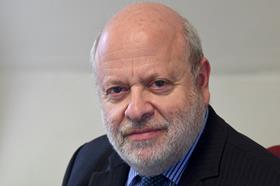SLAPPs (strategic litigation against public participation) are now being tackled by three different organisations of interest to the UK.

First, our own parliament is dealing with the government’s amendments which introduce limited anti-SLAPP provisions to the Economic Crime and Corporate Transparency Bill.
Second, the Council of Europe (CoE), of which the UK remains a member, is working on a recommendation to counter the use of SLAPPs.
And, finally, the EU is in the middle of legislating for its own anti-SLAPP directive.
In discussions about SLAPPs, lawyers often ask why such a fuss is made about a field of law in which so few practise – mainly reputation management lawyers - and which concerns such a tiny proportion of the population.
The answer lies in the fact that it affects the reputation of the profession so severely. The repeated debates in the House of Commons where individual lawyers were named and hauled over the coals provide a handy reminder. A focus on the role of lawyers has not gone away.
To take one example from the three above, and the one which is of least interest to us - the EU draft legislation (we are no longer a member) - there are amendments put down by a committee of the European Parliament which show that legislators are itching to get lawyers to behave (in their view):
‘Member states should also consider introducing dedicated rules governing the ethic codes of lawyers and other legal practitioners, as to sanction the participation in initiating SLAPPs or disguising them as founded claims.’
This is interesting not only because of its poor view of lawyers, but also because it is taking place in an EU without the UK. Civil law lawyers – I heard this view just last week – often say that SLAPPs are an Anglo-Saxon problem, nothing to do with them.
But reports from the Coalition against SLAPPs in Europe (CASE) explain why the EU is steaming ahead with its legislation (as is the CoE with its recommendation). CASE reports show that SLAPPs are a Europe-wide problem. The numbers are not large (they are indeed largest in the UK), but other countries have their fair share, such as France, Italy and Poland.
The CoE’s recommendation on countering SLAPPs is still in draft form and being debated. A recommendation is not binding on member state governments like the UK. But given that we remain a member of the CoE, and given that SLAPPs entail a balancing of rights – the right to reputation against the right to freedom of expression, say – cases on the topic may go from the UK to the European Court of Human Rights. It is a reasonable expectation, I think, that there should be some consistency between the CoE recommendation and the UK government’s own anti-SLAPP proposals, since both are being devised simultaneously.
But consistency and coherence do not seem to be the hallmarks of the three anti-SLAPP initiatives. For instance, on the central question of what is a SLAPP, they each have different indicators. They are not different in essence, they are all going in the same direction of trying to stop abusive litigation, but they are different in content.
So the original European Commission proposal and the EU Council’s current position on the EU directive have a clause which is missing from the CoE draft and also from the UK government’s current list of SLAPPs indicators. The missing indicator is: ‘the existence of multiple proceedings initiated by the claimant or associated parties in relation to similar matters’.
And then there’s a CoE indicator missing from the other two. The CoE has the most indicators, eight of them. One of the eight is: ‘The lawsuit targets individuals, or others not directly involved in the initial communication, as well as the organizations they work on behalf of’.
Too much remains vague, too. For instance, our own government’s indicators, once the restriction to areas of economic crime are out of the way, are: ‘harassment, alarm or distress, expense, or any other harm or inconvenience, beyond that ordinarily encountered in the course of properly conducted litigation’.
But what are the levels of alarm, distress, and expense which are acceptable in properly conducted litigation, so that we know what goes beyond them? Litigation is so wildly expensive and out of the reach of ordinary people, and indeed so alarming to most ordinary people, that the test is impossible to pre-judge.
I could go on.
Defining what is a SLAPP remains one of the most elusive targets of all anti-SLAPP legislation. Is it too much to expect that there should be some attempt at consistency of definition among the three European bodies (including our government), in order to help lawyers who may in future puzzle how best to act in this complex area?
Jonathan Goldsmith is Law Society Council member for EU & International, chair of the Law Society’s Policy & Regulatory Affairs Committee and a member of its board. All views expressed are personal and are not made in his capacity as a Law Society Council member, nor on behalf of the Law Society































1 Reader's comment